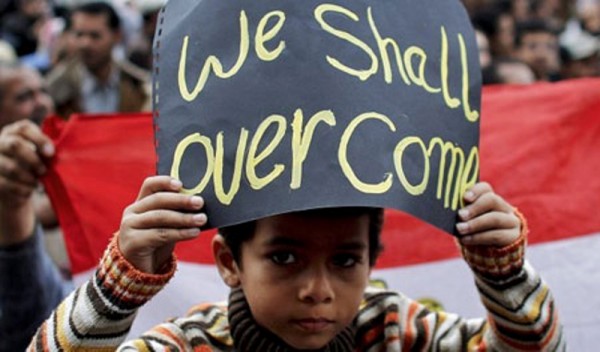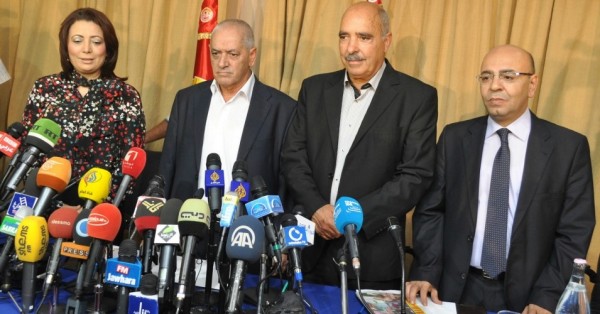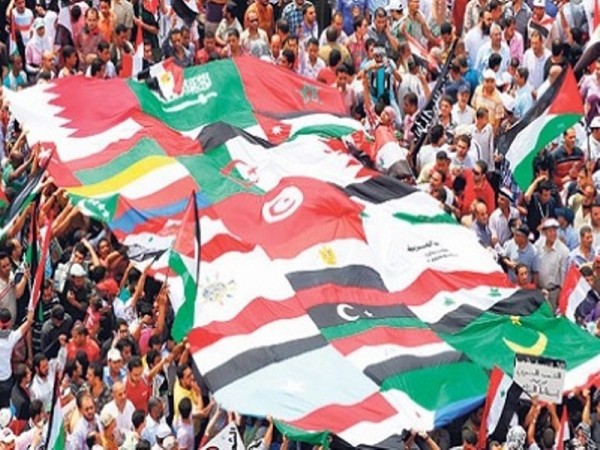
The 2015 Nobel peace prize was awarded to the Tunisian National Dialogue Quartet, a group of four organizations that were central in building a pluralistic democracy in Tunisia in the wake of the Jasmine Revolution of 2011.
The quartet was formed in the summer of 2013 and it is made up of the Tunisian General Labour Union, the Tunisian Confederation of Industry, Trade and Handicrafts, the Tunisian Human Rights League, and the Tunisian Order of Lawyers.
The Nobel Committee said the Quartet was awarded the Peace Prize “for its decisive contribution to the building of a pluralistic democracy in Tunisia in the wake of the Jasmine Revolution of 2011.”
Little was known about the Quartet; however, since receiving the prize, more details about what the organization did to merit the award have begun emerging. And certainly, it is difficult to argue that the organization does not merit the prize.

Unlike President Barack Obama, who was awarded the Prize in 2009 for virtually doing nothing, the Quartet actually stopped Tunisia from becoming like Egypt, Yemen, and Libya. Although Obama was awarded a Peace Prize, his military continue to commit heinous crimes across the globe. Recently, Obama’s military bombed a hospital in Afghanistan that is run by another Nobel Peace Prize winner. Doctors Without Borders, or Médecins Sans Frontières, was awarded the Peace Prize in 1999 for providing medical services to people in more than 80 countries, often working in some of the most dangerous places on earth.
At this moment in time, Obama is thinking about how to compensate the families of the hospital victims. Therefore, some critics have good grounds to ask how Obama emerged as the winner of the Peace Prize in 2009.
However, in the case of the current award, it is difficult to ask questions. The work the Quartet did is there for everybody to see.
The Jasmine Revolution, which is considered a key element of the so-called Arab Spring, was an intensive campaign of civil resistance that also included a series of street demonstrations that took place in Tunisia. The events began on December 18th, 2010 and eventually led to the ousting of US-backed, long-time president of the country, Zine El Abidine Ben Ali in January 2011.
When Ben Ali was toppled, protests quickly spread throughout the Arab World. Whereas the protest succeeded in removing another long-time ruler—Hosni Mubarak—from power in Egypt, bloody wars were fought in Libya, Syria (ongoing), and Yemen. Muammar Gaddafi of Libya, was killed by rebels with the help of NATO’s air power. Ali Abdullah Saleh of Yemen, resigned after surviving a deadly bomb attack on his presidential compound.
With the exception of the Libyan situation, where a foreign military intervened, internal actions by citizens removed three presidents from power. Although Egypt showed signs of moving forward without Hosni Mubarak, the election of the Muslim Brotherhood, which was led by Mohamed Morsi, brought many challenges.
In the end, Morsi had to be forced out of power. Today, the country is not what its citizens had hoped for during the toppling of Mubarak. In Yemen, Saleh is gone but the country is still torn between warring factions. The least said about Libya, the better. Currently, there are two governments running the country. There are also many armed groups operating with different motives and ideologies. For some, Libya under Gaddafi was far better than Libya today.
But in Tunisia, after the departure of Ben Ali, parliamentary elections were held. A right-wing religious party, al-Nahda (“Renaissance”), took 37% of the vote and formed a coalition government with two other parties, one on the left and the other composed of secular liberals. Hamadi Jebali, a solar energy scientist and member of al-Nahda, became the first prime minister. He later stepped down when fellow party members pressured him to abandon his efforts to build a coalition government of national unity.
In the following years, while the al-Nahda party continued to rule, several prominent left-wing politicians were assassinated. The far right-wing Islamist militia Ansar al-Shariah, claimed responsibility for these assassinations. Unhappy with the Islamist turn of their revolution and furious at what they saw as the government’s inaction after the assassination of left-wing Popular Front politician Mohamed Brahmi, Tunisians once again took to the streets. Unions, women’s organizations, and student groups all demanded that al-Nahda step down in favor of a more neutral, technocratic government.
According to the Common Dreams, the profound political conflict in Tunisia could have easily turned into an armed confrontation. But it didn’t. Instead the country’s organized political forces, aided by the National Dialogue Quartet, achieved something remarkable, especially in the context of the present Greater Middle East. Al-Nahda withdrew from the government and was replaced with a technocratic caretaker government. Under it, a new secular constitution was written and, in October 2014, parliamentary elections were held, followed by presidential elections that November.
Today, Tunisia continues to face challenges, including two separate deadly attacks on foreigners this year. But despite these attacks and other challenges, Tunisia has something unique among the Arab Spring countries—-a stable democratic government championed by the National Quartet Dialogue.
You want to support Anonymous Independent & Investigative News? Please, follow us on Twitter: Follow @AnonymousNewsHQ
This Article (How To Win A Nobel Peace Prize; The Tunisian Example) is free and open source. You have permission to republish this article under a Creative Commons license with attribution to the author and AnonHQ.com






